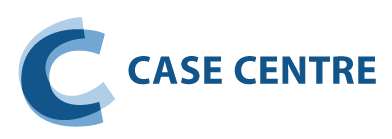


- Not connected
- |
- Login

BeautifulCoffee and Fair Trade: Working with Local Farmer Co-operatives in Nepal
BeautifulCoffee et le commerce équitable : collaboration avec les coopératives agricoles locales au Népal

- IJCSM Best Case Award
- French,
- English
- Fair trade,
- Co-operatives,
- Developing countries,
- Local communities
- Commerce équitable,
- Coopératives,
- Pays en voie de développement,
- Communautés locales
Not long after John, BeautifulCoffee’s (BC) newly appointed producer partnership manager, began his evaluation of the business relationship between BC and its coffee producer organization in Nepal, he realized that the relationship fell far short of internationally recognized fair trade standards. Furthermore, production quality was low because of poor management at DCF-Gulmi. BC was investing substantial resources in helping the local community in Nepal, and the term “fair trade” had significant appeal to Korea’s ethical consumer segment. The fact that BC was unable to guarantee that DCF-Gulmi was being managed according to a democratic governance system – a key requirement for fair trade certification – raised legitimacy concerns for BC. John had to decide whether to prioritize social or business considerations. If he decided to prioritize the business aspect of fair trade, he would need to replace the partner supplier with a fair-trade certified, democratically run organization with the management capability to provide high-quality coffee beans. If this path was chosen, BC would still make a positive contribution to the well-being of coffee farmers – somewhere else – but would not help DCF-Gulmi improve its current situation, leaving it worse off than it was before it partnered with BC. Alternatively, BC could maintain its relationship with DCF-Gulmi, deepening its commitment to helping the farmers’ organization improve its quality management capability and comply with fair trade standards. But this would require a larger financial and human resource commitment to pay for the recruitment and training of personnel with the necessary expertise in organizational change, co-operative management, and capacity building. Students will discuss the moral and strategic issues surrounding these two choices.
Peu de temps après avoir entrepris son évaluation des rapports entre BC et son organisation de producteurs de café au Népal, John (le nouveau responsable du partenariat avec les producteurs) se rend compte que ces rapports sont loin de respecter les normes internationales reconnues dans le domaine. De plus, la qualité de la production est faible en raison d’une mauvaise gestion chez DCF-Gulmi. BC investit des ressources considérables pour aider la communauté locale au Népal, et le terme « commerce équitable » plaît beaucoup au segment des consommateurs éthiques de la Corée. Le fait que BC n’ait pas été en mesure de garantir une gouvernance démocratique chez DCF-Gulmi – pourtant une exigence clé pour la certification équitable – soulève des préoccupations quant à la légitimité des opérations. John doit donc décider s’il faut accorder la priorité aux considérations sociales ou commerciales. S’il opte pour l’aspect commercial, il doit remplacer le fournisseur partenaire par une organisation certifiée équitable, gérée démocratiquement et dotée de la capacité nécessaire pour fournir des grains de café de haute qualité. Ce choix signifie que BC contribuera au bien-être des caféiculteurs, mais ailleurs, sans que cela n’aide DCF-Gulmi à améliorer sa situation actuelle, la laissant même en pire posture que ce qu’elle avait vécu avant son partenariat avec BC. Inversement, BC peut maintenir sa relation avec DCF-Gulmi, en augmentant son aide à l’organisation d’agriculteurs pour améliorer sa capacité de gestion de la qualité et sa conformité aux normes équitables. Toutefois, cela nécessite un engagement financier et humain accru, pour payer le recrutement et la formation du personnel ayant les compétences nécessaires dans le changement organisationnel, la gestion coopérative et le renforcement des capacités. Les étudiants devront discuter des questions morales et stratégiques entourant ces deux choix.
- Agriculture, forestry, fishing and hunting
Fair trade, Co-operatives, Developing countries
Commerce équitable, coopératives, pays en voie de développement
This case aims to introduce students to the unique managerial challenges facing the fair trade industry. Using the example of the partnership between BC (South Korea) and DCF-Gulmi (Nepal), the instructor will discuss the struggles and opportunities of relationships between organizations in developed and developing countries. The case has three main learning objectives:
- Evaluate the advantages and limitations of the fair trade business approach to development and poverty alleviation
- Understand and analyze the conflicts between the economic and social objectives of fair trade projects
- Create a strategic plan to reconcile social and economic objectives in both local and global contexts.
Le cas a pour but de présenter aux étudiants les défis de gestion uniques auxquels fait face le commerce équitable. À partir de l’exemple du partenariat entre BC (Corée du Sud) et DCF-Gulmi (Népal), l’enseignant examinera les difficultés et les potentialités des relations entre les entités issues des pays développés et celles qui proviennent de pays en voie de développement. Le cas comporte trois grands objectifs d’apprentissage :
- évaluer les limites et les avantages inhérents au commerce équitable comme moyen de développement et de lutte contre la pauvreté;
- comprendre et analyser les conflits entre objectifs économiques et objectifs sociaux dans les projets équitables;
- élaborer un plan stratégique pour concilier les objectifs sociaux et les objectifs économiques dans un contexte local et mondial.
- Fair trade
- Partnerships and patnership management
- Co-operatives
Commerce équitable, partenariats et gestion de partenariat, coopératives


